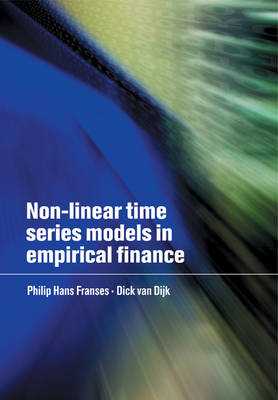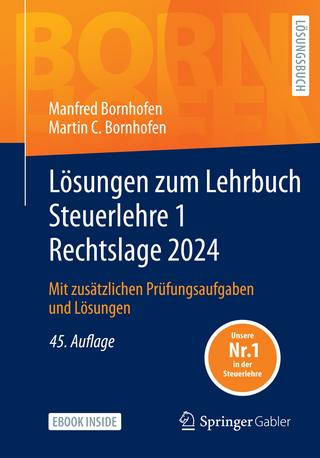
Non-Linear Time Series Models in Empirical Finance
Seiten
2000
Cambridge University Press (Verlag)
978-0-521-77965-4 (ISBN)
Cambridge University Press (Verlag)
978-0-521-77965-4 (ISBN)
An accessible guide to one of the fastest growing areas in financial analysis by one of Europes's leading teaching and researching teams, first published in 2000. This classroom-tested advanced undergraduate and graduate textbook provides an in-depth treatment of non-linear models, including regime-switching and artificial neural networks.
Although many of the models commonly used in empirical finance are linear, the nature of financial data suggests that non-linear models are more appropriate for forecasting and accurately describing returns and volatility. The enormous number of non-linear time series models appropriate for modeling and forecasting economic time series models makes choosing the best model for a particular application daunting. This classroom-tested advanced undergraduate and graduate textbook, first published in 2000, provides a rigorous treatment of recently developed non-linear models, including regime-switching and artificial neural networks. The focus is on the potential applicability for describing and forecasting financial asset returns and their associated volatility. The models are analysed in detail and are not treated as 'black boxes'. Illustrated using a wide range of financial data, drawn from sources including the financial markets of Tokyo, London and Frankfurt.
Although many of the models commonly used in empirical finance are linear, the nature of financial data suggests that non-linear models are more appropriate for forecasting and accurately describing returns and volatility. The enormous number of non-linear time series models appropriate for modeling and forecasting economic time series models makes choosing the best model for a particular application daunting. This classroom-tested advanced undergraduate and graduate textbook, first published in 2000, provides a rigorous treatment of recently developed non-linear models, including regime-switching and artificial neural networks. The focus is on the potential applicability for describing and forecasting financial asset returns and their associated volatility. The models are analysed in detail and are not treated as 'black boxes'. Illustrated using a wide range of financial data, drawn from sources including the financial markets of Tokyo, London and Frankfurt.
1. Introduction; 2. Some concepts in time series analysis; 3. Regime-switching models for returns; 4. Regime-switching models for volatility; 5. Artificial neural networks for returns; 6. Conclusion.
| Erscheint lt. Verlag | 27.7.2000 |
|---|---|
| Zusatzinfo | 51 Tables, unspecified |
| Verlagsort | Cambridge |
| Sprache | englisch |
| Maße | 176 x 247 mm |
| Gewicht | 590 g |
| Themenwelt | Wirtschaft ► Betriebswirtschaft / Management ► Finanzierung |
| Wirtschaft ► Volkswirtschaftslehre ► Ökonometrie | |
| ISBN-10 | 0-521-77965-0 / 0521779650 |
| ISBN-13 | 978-0-521-77965-4 / 9780521779654 |
| Zustand | Neuware |
| Haben Sie eine Frage zum Produkt? |
Mehr entdecken
aus dem Bereich
aus dem Bereich
Allgemeines Steuerrecht, Abgabenordnung, Umsatzsteuer
Buch (2024)
Springer Gabler (Verlag)
CHF 39,20
theoretische Basis und praktische Anwendung
Buch | Softcover (2023)
De Gruyter Oldenbourg (Verlag)
CHF 55,90


